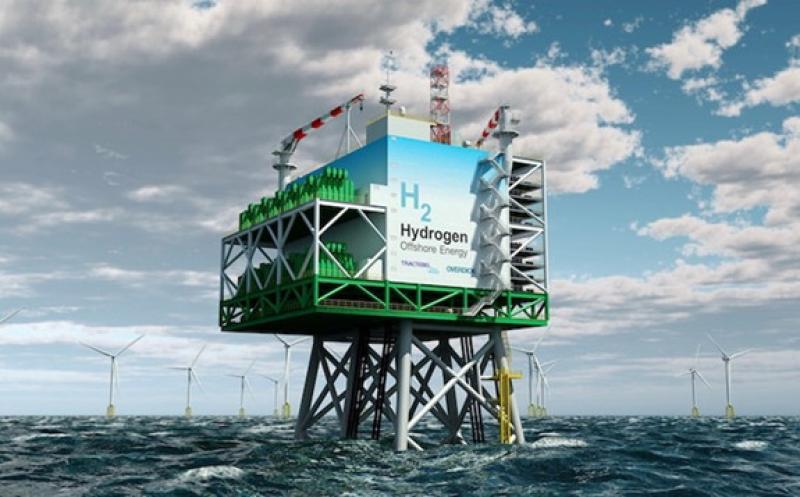Within the next decade, global demand for renewable and low carbon hydrogen could grow by 50%, according to a new Hydrogen Council report.

As a result, the Hydrogen Council CEO coalition is calling on world leaders to show concerted effort to materialise announced hydrogen plans around the globe to get the world on track with climate targets.
Going hand in hand with electrification, the development of the hydrogen economy is vital to enable deep decarbonisation worldwide in a cost-effective and efficient manner.
This will allow countries to meet their climate goals, boost green growth and create sustainable jobs, the Hydrogen Council said.
To stimulate the bold action needed, the Hydrogen Council is putting forward new, comprehensive data on the carbon abatement potential of hydrogen, alongside a ready-to-deploy toolbox of instruments and measures to create enabling policy frameworks for renewable and low carbon hydrogen.
The Council’s Hydrogen for Net Zero report shows that hydrogen can provide the lowest-cost decarbonisation solution for over a fifth of final energy demand by mid-century – contributing a cumulated reduction of 80Gt of CO2 – and is thus an essential solution to reach the 1.5°C climate scenario.
By 2030, this would translate into an annual CO2 emissions abatement equivalent to the total volume of CO2 emitted by UK, France, and Belgium combined.
However, this important steppingstone requires a significant scaling up of production, infrastructure and end uses now.
According to the council, the industry has built a solid foundation with more than 520 large-scale projects and 90+ GW of electrolyser production capacity announced worldwide, equivalent to $160bn (€138bn) of direct investments.
However, closer public-private collaboration is critical to increase investments: a fourfold increase is required by 2030 to put the world on the trajectory to Net Zero.
Only by frontloading investments and funding support in this decade can we scale up hydrogen to the level needed to reach global climate goals by 2050, while bringing costs down, the council said.
Released in tandem with the report by the Council, the Policy Toolbox for Low Carbon and Renewable Hydrogen, represents a comprehensive assessment of dozens of hydrogen policy measures applied across different segments of the value chain at different stages of market maturity.
It demonstrates how a set of effective policy and regulatory measures can provide the necessary visibility to investors in short-to-medium term, as well as in the longer term, helping to reduce project risk, thereby bringing down hydrogen costs, driving uptake and stimulating cross-border trade in hydrogen.
It also sheds light on the need for factoring in policy design societal values and benefits associated with the hydrogen economy development to contribute to delivering on the UN Sustainable Development Goals.
Co-chair of the Hydrogen Council and chief executive of Air Liquide Benoît Potier said: "Global warming is a key challenge of our times.
"Hydrogen is now widely recognised as a key element of a successful energy transition.
"To accelerate, governments and the industry must synchronise efforts to materialise its potential in order to actually meet net-zero targets.
"The data and policy guidance released today by the Hydrogen Council are critical in the context of COP26.
"This is a call to action for decision-makers and industry to join forces and realise planned activity, to set the transition up for success."
Hydrogen Council co-chair and chairman and chief executive of Cummins Tom Linebarger said: "Hydrogen can enable cost-effective decarbonisation of economies worldwide.
"There is clear momentum in hydrogen investments, but a transformation of such magnitude requires unprecedented mobilisation of public and private resources through strong partnerships and policy support.
"We look forward to working with governments on hydrogen for the benefit of our shared climate goals."
Hydrogen Council executive director Daryl Wilson added: "Put simply – there is no climate solution without hydrogen.
"We know from past experiences with technologies such as wind and solar that frontloading investments and policy support in early market development phase can bring down costs quickly, enabling deployment at pace and scale.
"Our new reports not only define how hydrogen can grow into an economy-wide solution by 2050, but offer practical recommendations on how to get there: by ramping up investments within the next decade, underpinned by efficient policy design."